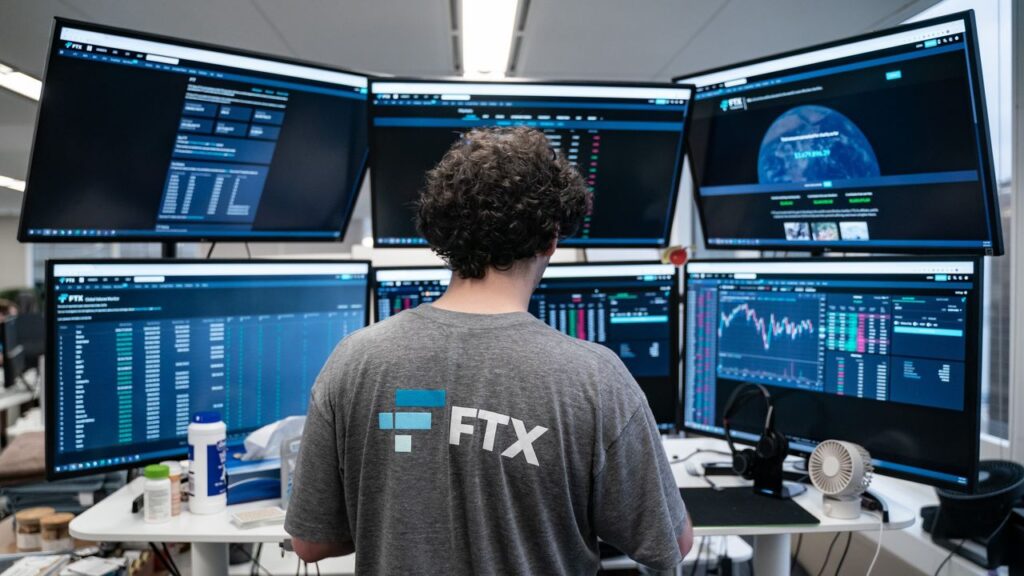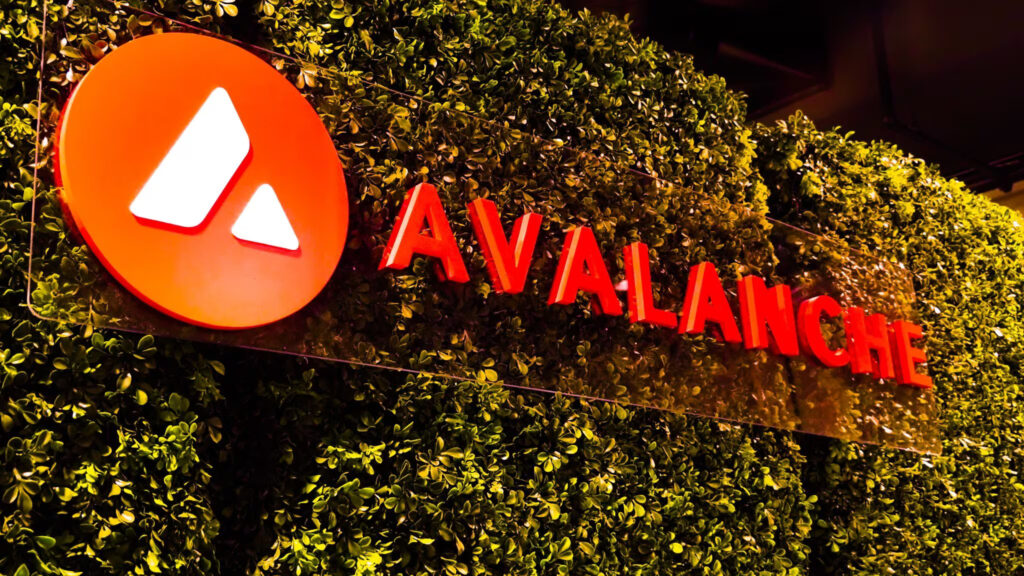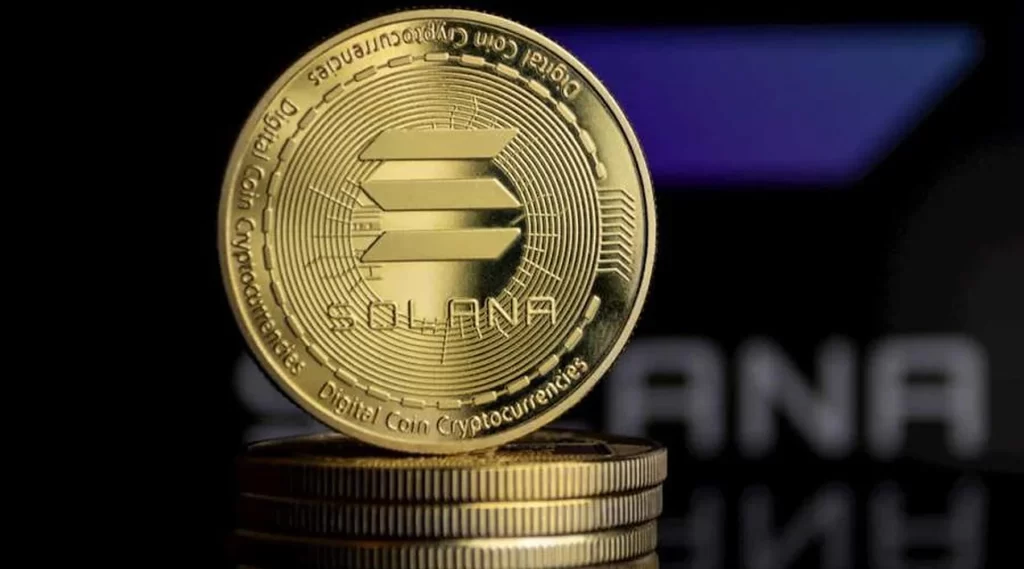Decentralised blockchain platform Aleo has reportedly exposed certain users’ information on 25th February, as per reports on X (previously Twitter).
The platform, centred on zero-knowledge (zk) cryptography, utilises a third-party protocol for Know Your Customer (KYC) purposes.
A pseudonymous user, @0xemirsoyturk, disclosed that Aleo erroneously forwarded KYC documents to his email.
These documents contained selfies and ID card photos of another individual, prompting concerns about the safeguarding of his own details.
Another user, @Selim_jpeg, corroborated the assertion, revealing that he also received KYC documents of a different person in his email.
To be eligible for a reward on Aleo, users must fulfil KYC/AML requirements and clear the Office of Foreign Assets Control (OFAC) screening, as stipulated by Aleo’s internal regulations.
This process is mandatory upon registration with HackerOne – a third-party protocol for gathering users’ unencrypted KYC data.
Zero-knowledge layer-1 blockchain platforms concentrate on furnishing heightened privacy and security for users.
They employ zero-knowledge proof cryptographic techniques to enable transactions without disclosing specific details, thereby ensuring confidentiality.
READ MORE: Coinbase Advocates for Ether ETP Approval Amid SEC Scrutiny
This privacy-oriented strategy renders it arduous for external entities to track or access sensitive information, furnishing users with greater control over their data.
These platforms strive to enhance privacy in blockchain transactions, rendering them more secure and confidential for participants.
Mike Sarvodaya, the founder of Galactica, a layer-1 blockchain infrastructure, highlighted that theoretically, such a protocol should never allow access to user data. He remarked:
“It’s ironic that a protocol for programmable privacy uses a third party to collect users’ unencrypted KYC data after that leaks to the public.
Apparently, when your zk stack is so advanced, you might just forget how to practice basic opsec.”
According to Sarvodaya, the Aleo incident ironically underscores the importance of developing storage and proof systems for sensitive data, such as Personally Identifiable Information (PII), based on zero knowledge or fully homomorphic encryption (FHE). In such systems, protocol rules must ensure that no single party can disclose stored data.
Aleo Foundation executive director Alex Pruden mentioned in an interview with The Block that the Aleo mainnet is slated for launch in the coming weeks, once final bugs are addressed, aiming to introduce privacy to crypto transactions.
Bankrupt cryptocurrency exchange FTX has resolved a dispute concerning its European arm, reverting ownership back to its original proprietors.
Reported by Reuters on 24th February, FTX consented to vend FTX Europe back to its founders for $32.7 million, indicating challenges in securing alternative buyers.
The Swiss startup Digital Assets AG, later rebranded as FTX Europe, was procured in a $323 million transaction in 2021.
Before agreeing to the sale, FTX endeavored to recuperate the expenditure incurred in the acquisition.
Alleging that the purchase was bankrolled with client funds and contending that the acquisition price was excessively high, the exchange lodged a lawsuit.
The founders of the startup, Patrick Gruhn and Robin Matzke, refuted the accusations and retaliated by demanding $256.6 million from FTX.
Reuters disclosed that the dispute was ultimately settled on 21st February.
FTX Europe was encompassed in FTX’s Chapter 11 filing in the United States in November 2022.
READ MORE: Bitcoin Struggles Amidst Institutional Investment Slowdown
Following its insolvency, several cryptocurrency exchanges endeavored to procure the European segment, aspiring to seize a portion of FTX’s local market.
For instance, the American cryptocurrency exchange Coinbase made two attempts to acquire FTX Europe: firstly in November 2022, subsequent to its parent company’s dramatic downfall, and then in September 2023.
Interest was also expressed by cryptocurrency firms Trek Labs and Crypto.com.
Operating in the region for merely eight months, FTX Europe launched a website for European clients to initiate withdrawals in March 2023, marking the first such action since declaring bankruptcy.
FTX is nearing the conclusion of its bankruptcy proceedings, intending to fully reimburse billions of dollars to its clients.
As part of its endeavours to recoup funds for creditors, the company was authorised on 22nd February to divest more than $1 billion in shares in the artificial intelligence company Anthropic.
Pseudonymous on-chain researcher ZachXBT has successfully recovered the majority of funds from the sale of a rare DeGods nonfungible token (NFT), which was pilfered in May 2023 following the original NFT holder’s unfortunate entanglement in a phishing scam.
In a post dated Feb. 24, ZachXBT relayed the outcome of his nine-month inquiry into the theft of the DeGods #3251 NFT to his 505,200 followers, revealing that most of the funds have now been restored to the victim.
The NFT was auctioned off in May 2023 for 99 Ether, valued at approximately £127,000 at the time.
“I am pleased to share that I was able to help recover a decent chunk of the stolen funds which have now been returned back to the victim,” said ZachXBT.
ZachXBT received a distress call from the victim in May 2023, shortly after the victim discovered his wallet had been emptied, seeking ZachXBT’s aid in reclaiming his digital artwork.
The duration of ZachXBT’s investigations can vary depending on the intricacies involved.
He frequently employs simple diagrams to elucidate to his followers how the phishing scams unfolded and to trace the movement of funds, even across cryptocurrency mixers.
“While recovery can sometimes be a protracted process, it is indeed achievable, and I am always eager to share such success stories,” he remarked.
ZachXBT also disclosed his intention to wrap up his pro bono blockchain investigation work soon.
READ MORE: Avalanche Blockchain Faces Block Production Disruption: Investigation Underway
He made this revelation following feedback from users expressing frustration because he did not assist them in recuperating their pilfered cryptocurrency, notwithstanding his reiterated assurance that this service is provided free of charge.
“This is precisely why I am ceasing all public interest work shortly,” he asserted.
ZachXBT has been a prominent figure in various sectors of the cryptocurrency industry, aiding in unraveling crypto-related crimes for both individuals and national authorities.
In October 2022, Cointelegraph reported that French authorities were leveraging ZachXBT’s research to apprehend the perpetrators behind the theft of NFTs valued at $2.5 million.
Christophe Durand, deputy chief of France’s national cyber unit, informed the AFP that they became aware of the incident following ZachXBT’s investigation on social media.
Financial services firm the Carlson Group has reportedly incorporated four out of the 10 Bitcoin exchange-traded funds (ETFs) into its offerings for registered investment advisers (RIAs).
The £30 billion investment firm prioritised asset growth, trading volume, and low fees in selecting funds from BlackRock, Fidelity, Bitwise, and Franklin Templeton, as reported by Bloomberg on 23rd February.
A total of £6.6 billion has been invested in BlackRock’s iShares Bitcoin Trust (IBIT) since its debut on 11th January, while Fidelity has seen £4.8 billion inflows to its Wise Origin Bitcoin Fund (FBTC).
The Bitwise Bitcoin ETF (BITB) and Franklin Bitcoin ETF (EZBC) have the lowest fees among issuers, charging 0.2% and 0.19% respectively.
“Bitwise and Franklin Templeton have committed to being the lowest-cost providers in the space, and have also seen large inflows and trading volumes.
READ MORE: Bitcoin Struggles Amidst Institutional Investment Slowdown
Both firms also have established in-house digital asset research teams and expertise that we feel are beneficial to the continuing growth and management of the products, as well as adviser research and education,” told Bloomberg Grant Engelbart, the company’s vice president and investment strategist.
Financial adviser platforms are crucial to introducing crypto products to new audiences, and large trading firms such as LPL Financial Holdings are examining recently approved Bitcoin ETFs.
The funds will be available to over 19,000 independent financial advisers overseeing £1.4 trillion in assets if approved. The ETFs are already available for financial advisers at Fidelity and Charles Schwab.
According to Bloomberg ETF analyst James Seyffart, due diligence from trading platforms may delay the Bitcoin fund’s adoption.
“A lot of the big institutions, these warehouses, these platforms where brokers or advisers work, they can’t just buy anything they want.
There’s like an approved list and a not approved list,” the analyst explained.
The United States Attorney’s Office has petitioned a federal judge to endorse additional travel constraints for former Binance CEO Changpeng “CZ” Zhao.
In a filing dated Feb. 23 in U.S. District Court for the Western District of Washington, U.S. Attorney Tessa Gorman urged Magistrate Judge Brian Tsuchida to ratify a motion outlining the terms for CZ to remain at liberty on bail.
Prosecutors requested that Zhao confine his travels to within the contiguous U.S. until his sentencing hearing on April 30 and furnish three days’ notice for any excursions to enable the government to lodge objections.
The U.S. Attorney’s Office also sought CZ’s surrender of his Canadian passport and “all other current and expired passports and travel documents” to his legal representatives.
Zhao, who also holds citizenship in the United Arab Emirates, had sought permission to journey there to visit relatives prior to his sentencing — a plea the judge dismissed.
As per the filing, “Zhao’s counsel object to this motion as written,” indicating that his legal team may persist in seeking a means for the former Binance CEO to depart the country.
In November 2023, CZ pleaded guilty to one felony count for failure to maintain an effective Anti-Money Laundering program at Binance.
READ MORE: Bitcoin Struggles Amidst Institutional Investment Slowdown
Since the indictment, he has remained at liberty on a $175 million bond.
Zhao resigned as Binance CEO as part of a $4.3 billion settlement between the crypto exchange and U.S. authorities.
On Feb. 23, Judge Richard Jones approved the $1.8 billion fine and forfeiture of $2.5 billion.
CZ, Binance, and Binance.US still face a civil case with the U.S. Securities and Exchange Commission, which filed a lawsuit in June 2023.
“This truly is a case where the ethics of the company were compromised by greed,” remarked Judge Jones during the Feb. 23 hearing.
Following CZ’s departure, Richard Teng, former Binance head of regional markets, assumed the role of CEO.
In a December 2023 interview with Cointelegraph, Teng portrayed the exchange as “completely different” compared to its operations six years prior.
Bitcoin mining firm Riot Platforms has reported a 19% increase in its Bitcoin production for 2023, mining a total of 6,626 BTC.
The surge in production contributed to a rise in annual revenue, primarily attributed to the higher average price of Bitcoin throughout 2023 compared to the bear market witnessed in 2022.
According to a report published by Riot Platforms on February 22, the average cost for the firm to mine a single Bitcoin in 2023 decreased by approximately $3,686 compared to the previous year.
“Riot’s cost to mine Bitcoin for 2023, net of power credits allocated to self-mining, averaged $7,539 per Bitcoin versus $11,225 in 2022, a decrease of 33% year-over-year,” the report highlights.
Moreover, the average value of Bitcoin in 2023 exceeded that of 2022, leading to a revenue increase for the year, totalling $280.7 million, compared to $259.2 million in the previous year.
“The increase in Bitcoin Mining revenue was driven by slightly higher values of Bitcoin mined in 2023, which averaged $28,859 per Bitcoin as compared to an average price of $28,245 per Bitcoin in 2022.”
The crypto market faced a severe downturn in 2022, marked by the collapse of several crypto firms, including major exchange FTX.
Riot’s share price witnessed a significant surge of 47.47% over the past month.
READ MORE: Bitcoin Struggles Amidst Institutional Investment Slowdown
However, it experienced a decline of approximately 10.65% over the five-day trading period last week, with its current share price standing at $14.85.
In December 2023, Cointelegraph reported Riot’s acquisition of 66,560 mining rigs from manufacturer MicroBT, marking one of the largest expansions of hash rate in the firm’s history ahead of the Bitcoin halving scheduled for April.
Other Bitcoin mining firms also reported varying production results in 2023. Core Scientific produced 19,274 Bitcoin, while CleanSpark experienced a 60% surge compared to 2022, mining over 7,300 Bitcoin during the year.
Marathon Digital mined 12,852 Bitcoin in 2023, with a notable increase of 1,853 Bitcoin in December alone, representing a 56% surge from November and a remarkable 290% increase over December 2022.
In more recent developments, Riot, alongside the Texas Blockchain Council, filed a lawsuit against the United States Department of Energy, Energy Information Administration, and the Office of Management and Budget for demanding invasive data from crypto miners.
Potential inertia in the price of Bitcoin following the Bitcoin halving could destabilise the share prices of high-cost public miners in the United States, potentially compelling some to relocate overseas.
“We might see a mining stock bloodbath as investors realise these companies are barely making money,” says Jaran Mellerud, founder and chief mining strategist of Hashlabs Mining, alluding to the potential outcome if the Bitcoin price fails to experience a significant rise after the halving.
Mellerud is currently observing the three to four-month period post-halving to gauge the impact on miner profitability due to the reduction in block rewards.
The upcoming Bitcoin halving is anticipated to take place on April 24, according to CoinMarketCap.
It will decrease Bitcoin miner rewards from 6.25 BTC (£234,750) to 3.125 BTC (£117,375), although historical trends suggest a subsequent surge in the Bitcoin price.
During the last halving event on May 11, 2020, Bitcoin was valued at $8,750 and experienced a staggering 430% increase five months later in October, soaring from $11,500 to $61,300 by mid-March 2021.
However, if Bitcoin fails to rally significantly within that three to four-month timeframe, “a significant portion of the network might need to power down their machines, particularly those paying hosting rates of $0.07 per kWh or more,” Mellerud noted, highlighting a notable concentration of these inefficient miners in the United States.
Consequently, Mellerud anticipates a shift in some of Bitcoin’s hash rate from the U.S. to countries with lower electricity rates, particularly in Africa and Latin America.
“My company, Hashlabs, is currently witnessing substantial demand from US-based miners who wish to relocate their machines to Ethiopia, where hosting rates are 30-40% lower than in the United States.”
Concerns regarding profitability surfaced in late January when Cantor Fitzgerald reported that 11 publicly listed Bitcoin miners would not be profitable post-halving if Bitcoin’s price remained around $40,000 (the price of Bitcoin at the time).
Cantor Fitzgerald’s “all in per coin” metric encompasses the total costs a Bitcoin miner would incur in producing a single Bitcoin, encompassing electricity costs, hosting fees, and other expenses.
READ MORE: Solana NFT Sales Skyrocket to Over £5 Billion, Setting New Record High
Nonetheless, with Bitcoin’s price currently standing at $51,000, only four of the 13 mining firms fall below the profitability threshold.
However, head analyst at Bitcoin mining firm Blockware Solutions, Mitchell Askew, informed Cointelegraph that most U.S. public miners would maintain profitability, especially those that invested in more efficient machines during the bear market.
Askew refuted Mellerud’s claim that most inefficient miners are based in the U.S., asserting that they constitute only a small fraction of Bitcoin’s total hash rate, making any hash rate loss negligible.
Nevertheless, even in the event of unprofitability, Askew outlined several reasons preventing U.S. miners from relocating overseas.
“[Many of them] are bound by fixed hosting contracts and must continue mining regardless of profitability,” while others mine primarily to accumulate non-Know Your Customer Bitcoin and are less concerned with profitability, according to Askew.
Mellerud identified Ethiopia, Nigeria, and Kenya as the most promising African countries to attract a larger share of the hash rate in the event of a mining migration.
Mellerud particularly highlighted Ethiopia’s “massive hydropower surplus” and the influx of Chinese miners as factors contributing to its appeal, projecting the African nation to capture 5–10% of Bitcoin’s total hash rate over the next few years.
Meanwhile, Mellerud identified Argentina and Paraguay as the most promising mining destinations in South America.
The decentralised application (DApp) platform Avalanche encountered a significant technical disruption affecting the block production of its proof-of-stake (PoS) blockchain.
At 12:02:27 pm UTC on February 23rd, Avalanche’s primary network experienced block production issues, seemingly bringing the network to a halt.
Avalanche’s blockchain explorer indicated that the last block on Avalanche’s P-Chain, X-Chain, and C-chain subnets was produced over an hour earlier.
An official alert concerning the block finalisation stall was also issued by Avalanche. In a status update, Avalanche stated:
“Developers across the community are presently investigating a stall in block finalisation that is preventing blocks from being accepted on the Primary Network.”
Block production is a crucial process for the stability and continuity of blockchain networks, involving the creation of new blocks that validate and record transactions.
Disruptions in this process lead to transaction processing delays, impacting the network’s overall functionality.
In a post on X, Kevin Sekniqi, co-founder of Ava Labs, mentioned that the team is already looking into the issue.
READ MORE: Bitcoin Prepares for Pre-Halving Pullback Amidst Uncertain Timing
According to Sekniqi, the block production halt might be linked to a “new inscription wave” launched an hour before the issues arose.
The Ava Labs executive suggested that the problem could be an “esoteric bug from some edge case” and noted that it likely involves a mempool handling issue with inscriptions.
Sekniqi assured the community that this would be “dealt with swiftly.”
Nearly an hour later, Sekniqi clarified that the issue was a code-related bug unrelated to performance handling.
He explained that while inscriptions may have encountered an edge case, they did not affect performance.
Similar reports of Avalanche’s block production halting emerged on March 23rd, 2023.
At that time, the Avalanche blockchain explorer revealed that the C-chain had ceased producing blocks.
However, Sekniqi clarified that the network had been unstable due to a bug with its v1.9.12 and the team had deployed a fix to stabilise the network.
Solana-based nonfungible tokens (NFTs) have soared to a remarkable all-time sales volume surpassing £5 billion following a surge in NFT trading activity on the blockchain over the past four months.
As of February 23, data compiled by CryptoSlam revealed that the cumulative sales volume for NFTs operating on the Solana network has reached an impressive £5,013,847,972.
The data also highlights the substantial user base within the blockchain, boasting over 2.2 million buyers and 1.6 million sellers, resulting in nearly 43 million NFT transactions overall.
The performance of Solana NFTs experienced a noticeable turnaround after a relatively lacklustre period preceding November 2023.
From July 2023 onwards, monthly sales struggled to surpass £40 million. However, a significant shift occurred from October 2023 onwards.
READ: Bitcoin Prepares for Pre-Halving Pullback Amidst Uncertain Timing
The sales volume for Solana-based NFTs began to exhibit signs of resurgence, surging to approximately £82 million in November 2023—an impressive 192% increase compared to the preceding month’s £28 million in sales.
This momentum carried forward in subsequent months, with December 2023 witnessing Solana NFTs generating around £365 million in monthly sales, marking its second-highest monthly sales volume after the £373 million record set in October 2021.
Despite a slight slowdown in January, Solana NFTs still achieved sales exceeding £239 million for the month.
As of the latest data, February’s monthly sales volume stands at £161 million, underscoring the consistent growth trajectory in Solana NFT sales, amassing over £1 billion in sales volume over the last nine months.
The surge in Solana NFT sales observed in December 2023 coincided with a bullish price trend for Solana’s native token.
On December 26, 2023, SOL reached a peak of £121.45, with a trading volume reaching £5.7 billion, as reported by the cryptocurrency data tracker CoinGecko.
The European Union’s freshly minted Anti-Money Laundering Authority (AMLA) is set to make its home in Frankfurt, the financial hub of Germany, with operations commencing by mid-2025.
The AMLA will wield the power to oversee “high-risk and cross-border financial entities” – including crypto firms – should they traverse borders or carry a high-risk tag.
It will collaborate on its supervisory endeavours with financial intelligence units and regulators across other EU nations.
According to a press release dated Feb. 22 from the Council of the EU and the European Council, Frankfurt emerged triumphant as the chosen city for the agency’s headquarters.
Notably, the city is also home to the European Central Bank. Brussels, Dublin, Madrid, Paris, Rome, Riga, Vilnius, and Vienna had also vied for the spot.
The AMLA’s general board will feature representatives from regulators and financial intelligence units hailing from all EU member states. Meanwhile, the executive board, its governing body, will consist of the chair and five independent full-time members.
The inaugural comprehensive EU crypto framework, the Markets in Crypto-Assets (MiCA), took effect in June 2023.
READ MORE: Bitcoin Prepares for Pre-Halving Pullback Amidst Uncertain Timing
However, the enforcement of regulations governing “asset-referenced tokens” and “e-money tokens,” primarily encapsulated under stablecoins, is slated to kick in by June 2024.
Regulations pertaining to “crypto-asset service providers,” encompassing trading platforms, wallet providers, and cryptocurrency exchanges and services, are earmarked for implementation by December 2024.
Simultaneously, the EU has been diligently formulating regulations concerning artificial intelligence (AI).
On Feb. 13, the European Parliament’s Internal Market and Civil Liberties Committees gave their nod to the preliminary agreement on the European AI Act, marking the world’s first legislation squarely focused on AI.
The EU AI Act aims to instate safeguards, inclusive of copyright protection for creators, in response to generative AI models.
Furthermore, it prohibits AI applications that jeopardise citizens’ rights, such as biometric categorisation and social scoring. The maiden parliamentary vote on the AI Act is scheduled for April 2024.












